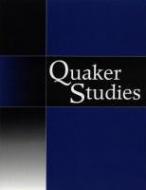
Abstract
This article examines the views of the Quaker educationist, Priscilla Wakefield, on the role of women in the construction of British national identity at the end of the eighteenth century. Priscilla Wakefield wrote children's texts in late-eighteenth and early-nineteenth century England, was interested in the question of women and science and published on the education of women. This article analyses the way in which in Reflections on the Present Condition of the Female Sex, with Suggestions for its Improvement (1798) , she based her arguments for a 'useful' education for women on her views of what constituted the virtues and values of British society. Wakefield was worried by what she perceived to be a growing degeneracy in Britain, which she feared was engendering similarities to society in pre-Revolution France. She saw it as the moral duty of rational mothers to inculcate their children, their servants and their fellow countrywomen into correct modes of being. The article traces the underlying influence of Quaker beliefs on Wakefield's writing and the similarities in her analysis to and differences from that ofher contemporary, Hannah More.
Recommended Citation
Leach, Camilla and Goodman, Joyce
(2000)
"Educating he Women of the Nation: Priscilla Wakefield and the Construction of National Identity, 1798,"
Quaker Studies: Vol. 5:
Iss.
2, Article 5.
Available at:
https://digitalcommons.georgefox.edu/quakerstudies/vol5/iss2/5
